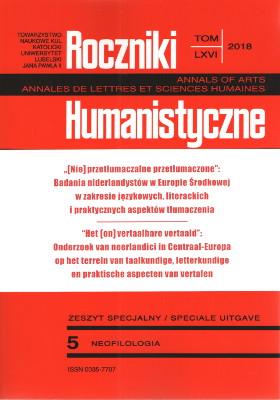Het competentieprofiel van de juridische vertaler en de methode van rechtsvergelijking als instrument bij het vertalen van ‘onvertaalbare’ juridische terminologie
The competention profile of the legal translator and the method of legal comparison as an instrument for the translation of ‘untranslatable’ legal terminology
Author(s): Pavlína Knap-DlouháSubject(s): Language and Literature Studies, Foreign languages learning, Translation Studies
Published by: Towarzystwo Naukowe KUL & Katolicki Uniwersytet Lubelski Jana Pawła II
Keywords: legal translation; comparative law; legal language; legal system
Summary/Abstract: We can define the legal comparison in two ways. From the perspective of the description, in which it can be used to explain how two legal systems or certain institutions operate within a particular legal system, or from an application as an instrument to achieve other purposes within the legal domain. The use of the methods of comparative law comparison for legal translators lies precisely in this applied area.In this article, comparative law is not approached in itself, but purely as an educational tool and exercise in legal translation. We will examine the methodology of legal comparison and apply it to concrete problematic, or ‘untranslatable,’ legal terms. Examples are references to legal concepts, institutions or procedures that only occur in the source language legal system but not in the target language legal system. One of the most important principles of legal comparison is that if we want to compare two objects or concepts, we must assume that they are comparable, at least in relation to one aspect (tertium comparationis). Unlike lawyers who use the method of legal comparison directly, legal translators cannot content themselves with this principle. They must find a translation for a particular legal entity, document or procedure, even if it has no equivalent in the target language legal system. The starting point for illustrating certain solutions to such translation problems is that legal translators should act as mediators between different legal cultures with the task of effectively transferring legal information, regardless of different legal traditions and legal languages.
Journal: Roczniki Humanistyczne
- Issue Year: 66/2018
- Issue No: 5S
- Page Range: 49-62
- Page Count: 14
- Language: Dutch

